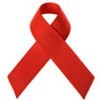By Ian Anderson (President, Smart + Strong)
The Announcement, a documentary about Magic Johnson, debuts on ESPN this Sunday. It explores the circumstances surrounding his now famous press conference in 1991 in which he revealed he was retiring from professional basketball because he had HIV.
Watch a trailer for the film:
I remember that press conference and couldn’t believe the news. It’s hard to describe how much of a big deal it was for such a sports legend to disclose his HIV status back then.
In 1991, people with HIV were banned from entering the country. AZT, the only HIV treatment on the market, had loads of unpleasant side effects. Other public figures, like Freddie Mercury, hid their HIV status until they were so visibly unhealthy that it was impossible to deny.
Johnson shattered a lot of stereotypes back then about who was living with HIV and who was at risk of contracting the virus. More than 20 years later, he continues to fight stigma and discrimination.
Which makes the recent news about a famous soccer star from South Africa so sad. Thabang Lebese, or “Chillies” to his fans, died last month. At first, the family blamed the hospital for his death. But after friends told his family that he had died of AIDS-related complications, the family issued an apology to the hospital.
Even though Lebese had been involved in promoting a nationwide HIV testing campaign, he never got around to disclosing his HIV status to his family before he became sick. His friends, however, say that he truly wanted to tell them.
Apparently, Lebese intended to make his own announcement when he got released from the hospital. He never got the chance, but his death has given South Africa, and all of us, an opportunity to reflect. His mother Florence Lebese said, “As a mother I believe that to address the problem of HIV/AIDS is to speak openly about the disease, so that we deal with the stigma associated with it.” I bet Lebese couldn’t have said it better himself.
More than 20 years apart, Johnson’s story and Lebese’s story reveal how much has been achieved in the fight against stigma, and how much further we still have to go.







4 Comments
4 Comments